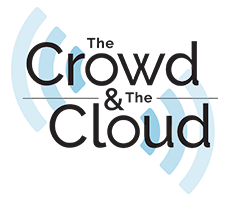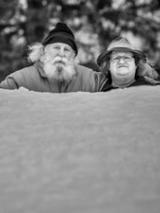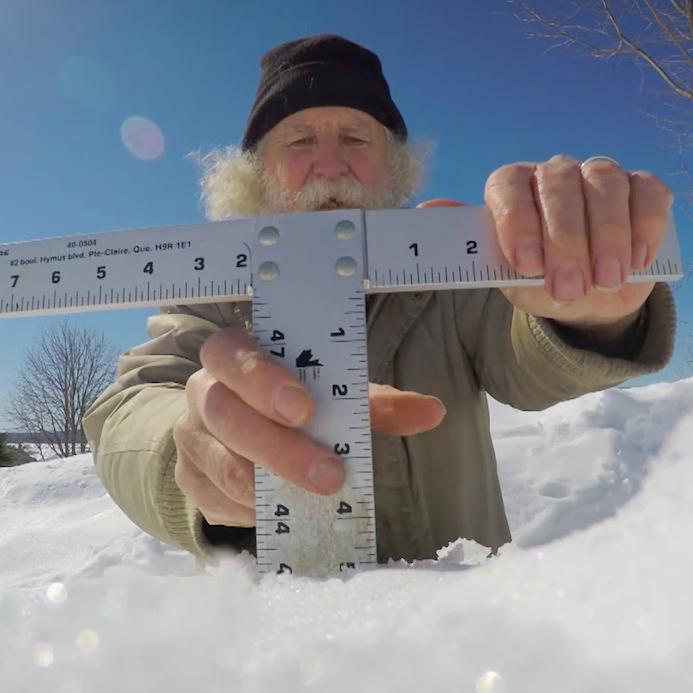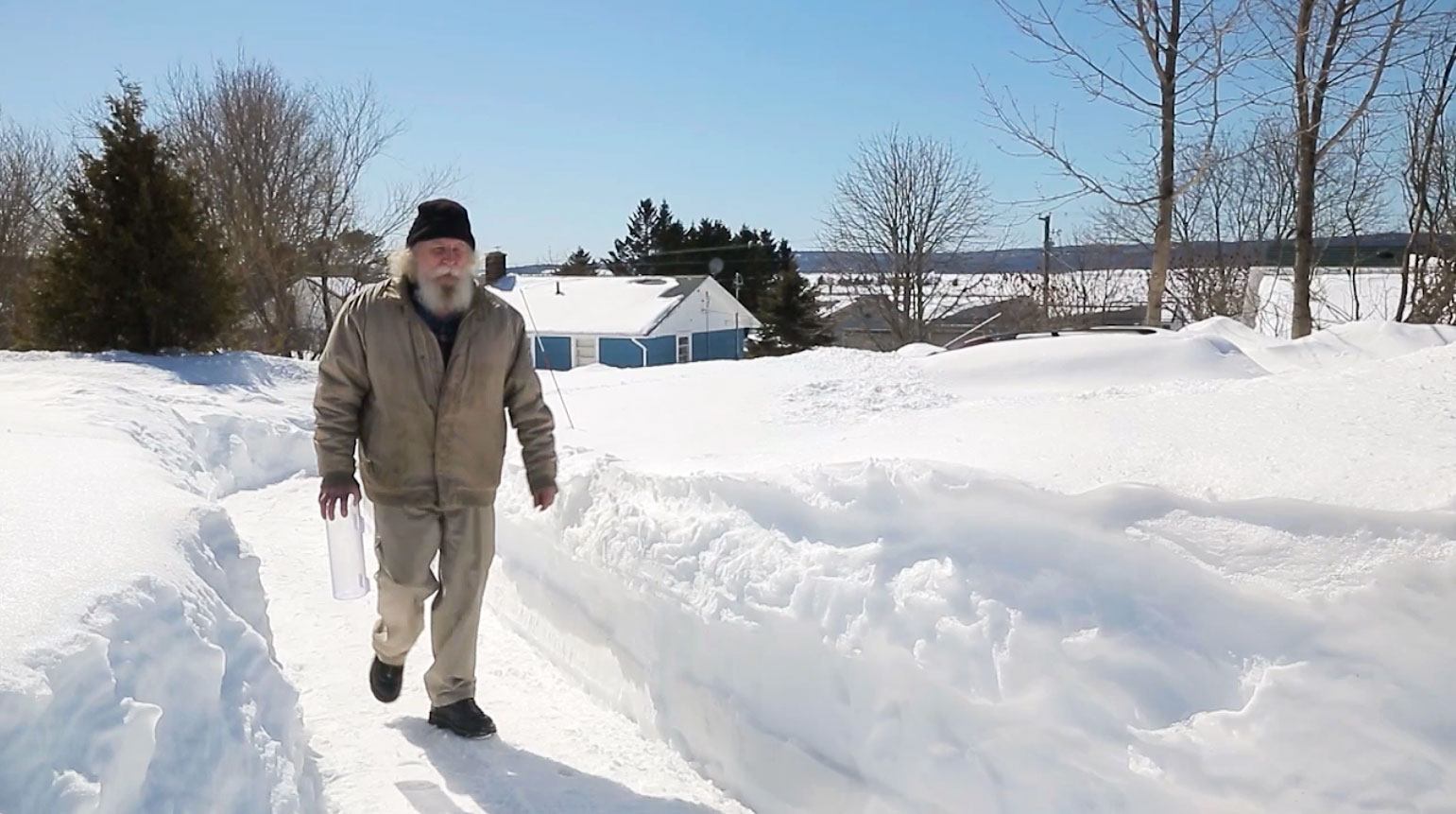
Newsletter
Sign up and stay in-the-know about The Crowd & The Cloud and the world of citizen science.


My name is Dan Matthews and my wife’s name is Leslie Gratton. We’re volunteers for CoCoRaHS in New Brunswick, Canada.
Was this a typical Canadian winter for your Atlantic province?
Dan:
It's certainly not been a typical winter here! Christmas was 12°C and raining.
Leslie:
By New Year’s we had about a foot of snow on the ground.
Dan:
The temperature then dropped after Christmas, and by New Year's Day we had 12 cm (~5 inches) of ice on the pond and were able to have our polar dip. That was the beginning of the cold weather. Then the snow started.
The first real blizzards delivered over 50 cm (~20 inches) of snow, with over 100 km/hour (~62 miles/hour) of wind, lasting for two days.
Leslie:
After the storm, it took me two days just to dig out of the driveway.
Dan:
We tried to clear up to the end of the driveway, but that was a losing battle because the snowplow would come along and fill it in on us.
Leslie:
When you're waving at the snowplow driver who fills in your driveway, remember to use all of your fingers.

Dan:
Then, in March, we had another blizzard deliver 40 cm (~16 inches) of snow. The storm shut things down all the way from Fredericton to the Nova Scotia border, so the local law enforcement, the Mounties, had to advise people to stay off the roads.
This year when the snow started in the middle of January, it got cold, and it stayed cold. When I say cold in the Maritimes here in Canada, I mean it. This year (2015), we've had four or five weeks in which the overnight temperature went down to -20°C every single night. There had been no thaws since the snow started, which was part of the problem. Cities like Moncton, St.John, and Halifax were having a hard time moving the snow and keeping the roads clear. If you only have two or three days between snowfalls, you don't have time. Clearing the streets with plows and moving the snow away are two different processes that can’t done at the same time. (C&C: Nolan Doesken says that official monitoring stations are not very good at capturing snow depth and density, and that this is one area where CoCoRaHS observers are particularly helpful.)
Leslie:
Not to mention actually running out of places to put the snow!
Why did you two get involved in CoCoRaHS?
Dan:
We work on this together, it’s a family affair. Leslie loves using the snowblower, she’s the one who gets the path cleared to the snow gauge. She has a lot of stamina, during one storm it took her four and a half hours to clear a path.
I got involved in CoCoRaHS two years ago and I feel that I am actually making a contribution to science. I was a meteorologist working for Environment Canada for 35 years before I got involved as a citizen. Part of my job was doing research and collecting data, especially from volunteer climate stations across the country. One study we did, was trying to track the water cycle in British Columbia. We wanted to see whether volunteer readings would be suitable for our process. Here in Nova Scotia, I studied volunteer information in support of climate change, as well as the variation of snowfall and precipitation in the Maritimes. The main meteorological stations of the Environment Canada network, when I left in 1998, were up to 300 km (~186 miles) apart. With CoCoRaHS, they get a much denser network of stations around 10 to 15 km (~6 to 9 miles) apart. That gives a better distribution of precipitation and snowfall readings.
How do CoCoRaHS volunteer measurements add value to the weather network that’s already in place?
Dan:
The reason that I believe CoCoRaHS is so important is that the government, at all levels, is increasingly relying on automated science. For example, last year in January (2014), we had a big rainstorm and there was several feet of snow on the ground when it rained. The road was closed for three months. I remarked in my report: “We have flood-like conditions, the road is closed and there's no transportation”. An automatic station will not give you that. The more information the better. Scientists need information if they’re going to give accurate predictions. So I do believe it's a worthwhile program.
This stuff is important for the government, for things like road clearing, and it's important for you to know if you're a farmer. Global warming is happening. The first question I get is “How can you talk about global warming? This is the coldest February we've had in 50 years.”
Leslie:
Global warming is not just warming. It is extreme fluctuation in weather. The change of seasons is more dramatic, more traumatic. We have stronger storms, more extreme weather. We get more hurricanes, tornadoes, and snowstorms.
Dan:
We need people's input, the little comments. When I do my snow core I dig down and the bottom 10 inches of the snow is big snow crystals, snow grains. Well, to the scientist that means something. That means that the system of thaw is starting to develop. 12 inches down there is a 4 inch crust of snow where we had freezing rain. All this information is important and it's not reported by a machine.

What’s your motivation for participating in this kind of volunteering?
Dan:
The process is 365 day a year program of readings taken at 7 o'clock in the morning, that's the time CoCoRaHS likes them done.
Leslie:
We usually wait until often the snow stops before you start digging because “He who shovels early, shovels twice”!
Dan:
I just felt that maybe it's my turn to give back. I enjoy the work, I think it's worthwhile and I'm willing to do a little extra, and as you can see from this year it can be challenging. There are definitely mornings you get up, look outside and whisper, “There’s been snow overnight, I don't want to go. Do I really have to go out and do this?” Well, after 35 years doing observations that had to be on schedule, it's sort of ingrained now. People that are interested will make that extra effort and provide the data that they have committed to provide. And do it to the best of their abilities. Either you have it or you don't have it. People can develop it, but if you don't have a sense of responsibility and dedication, it won't happen.
